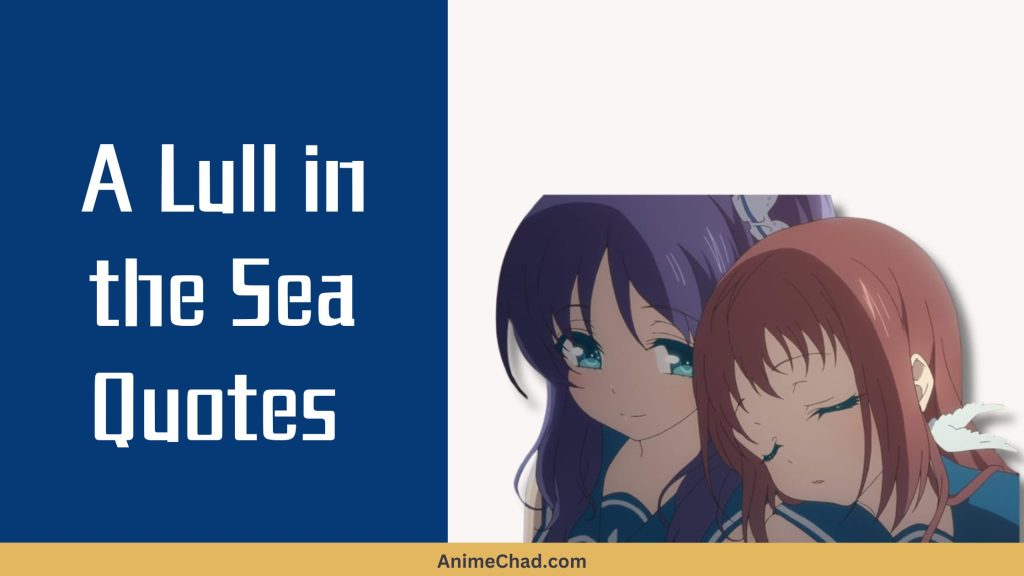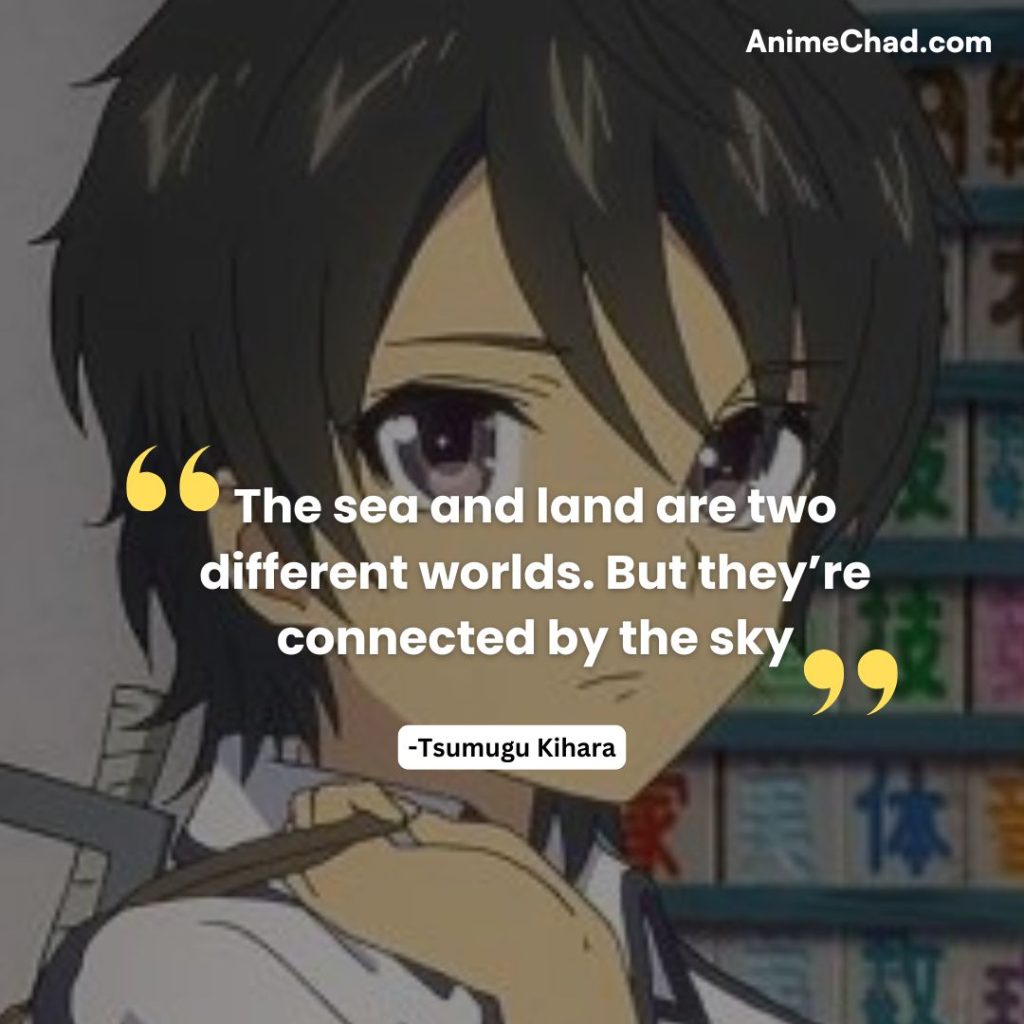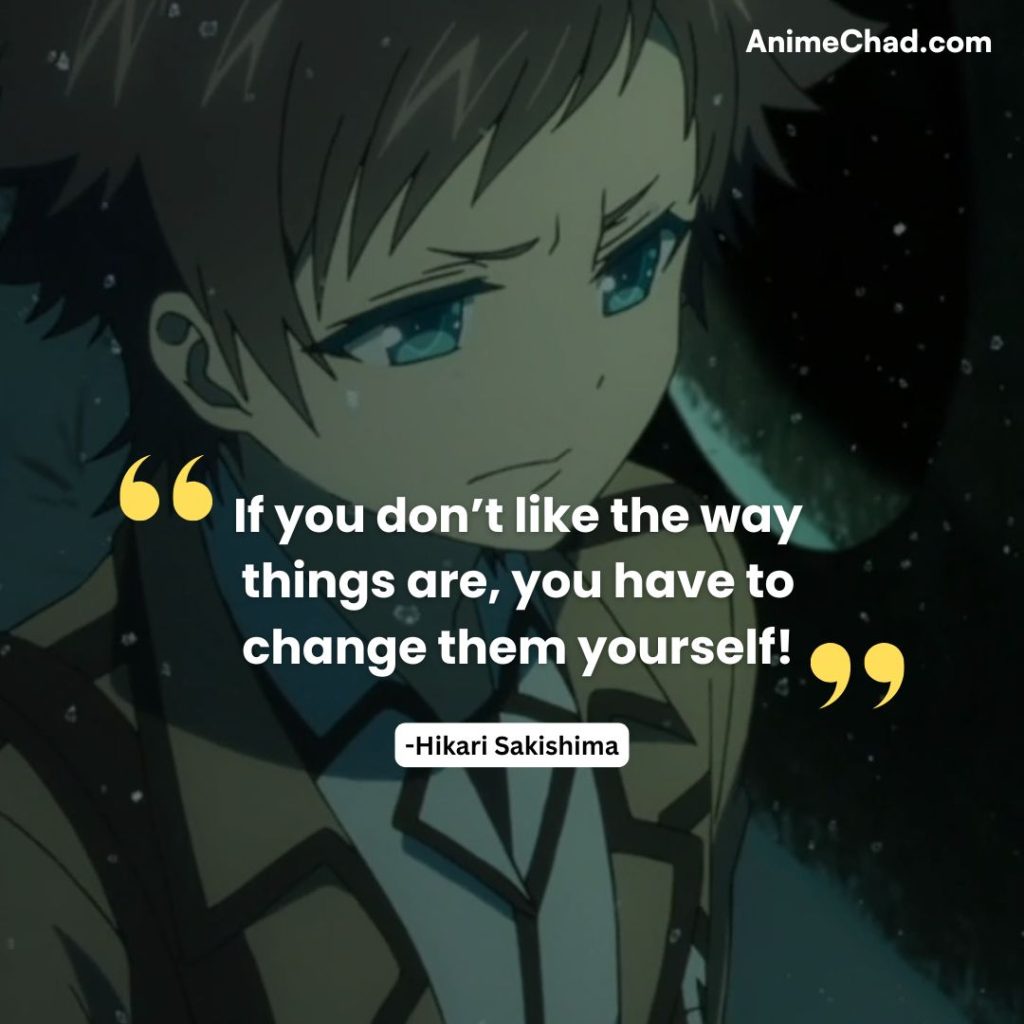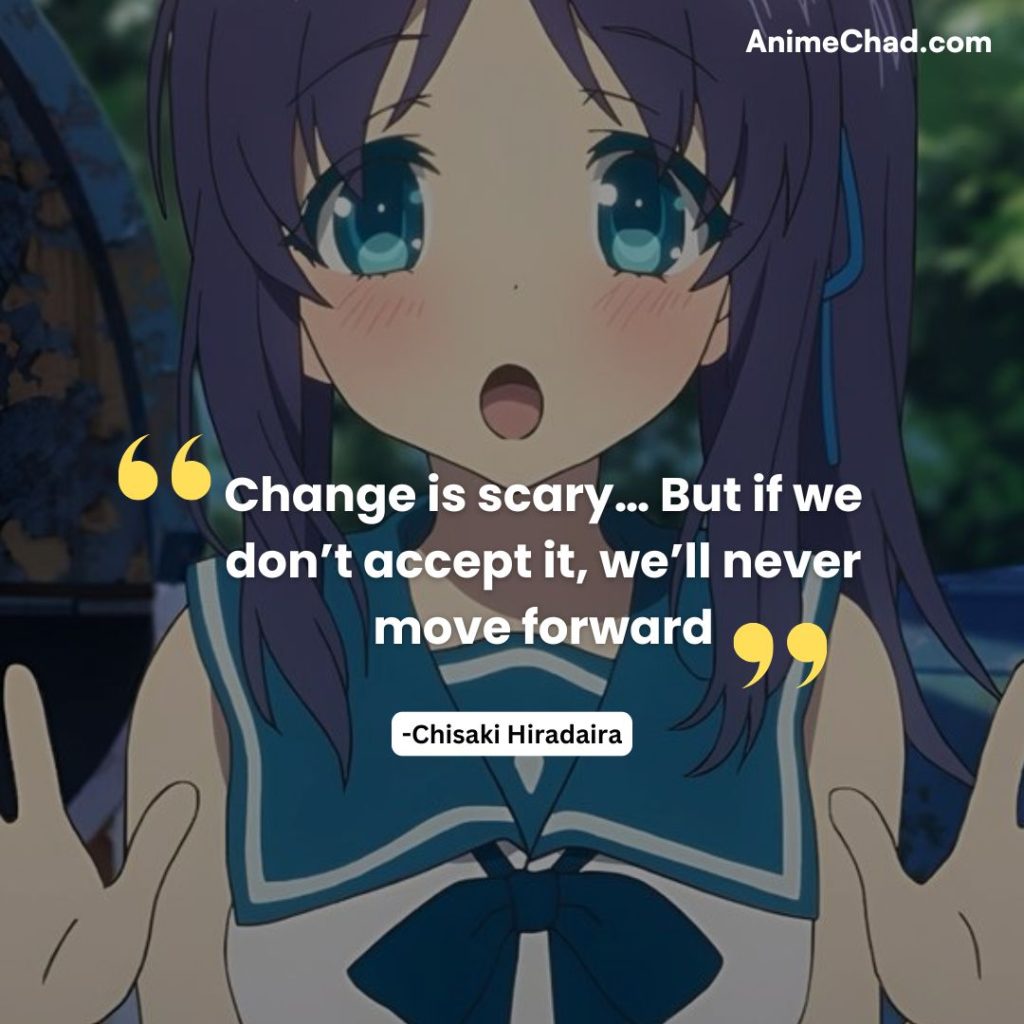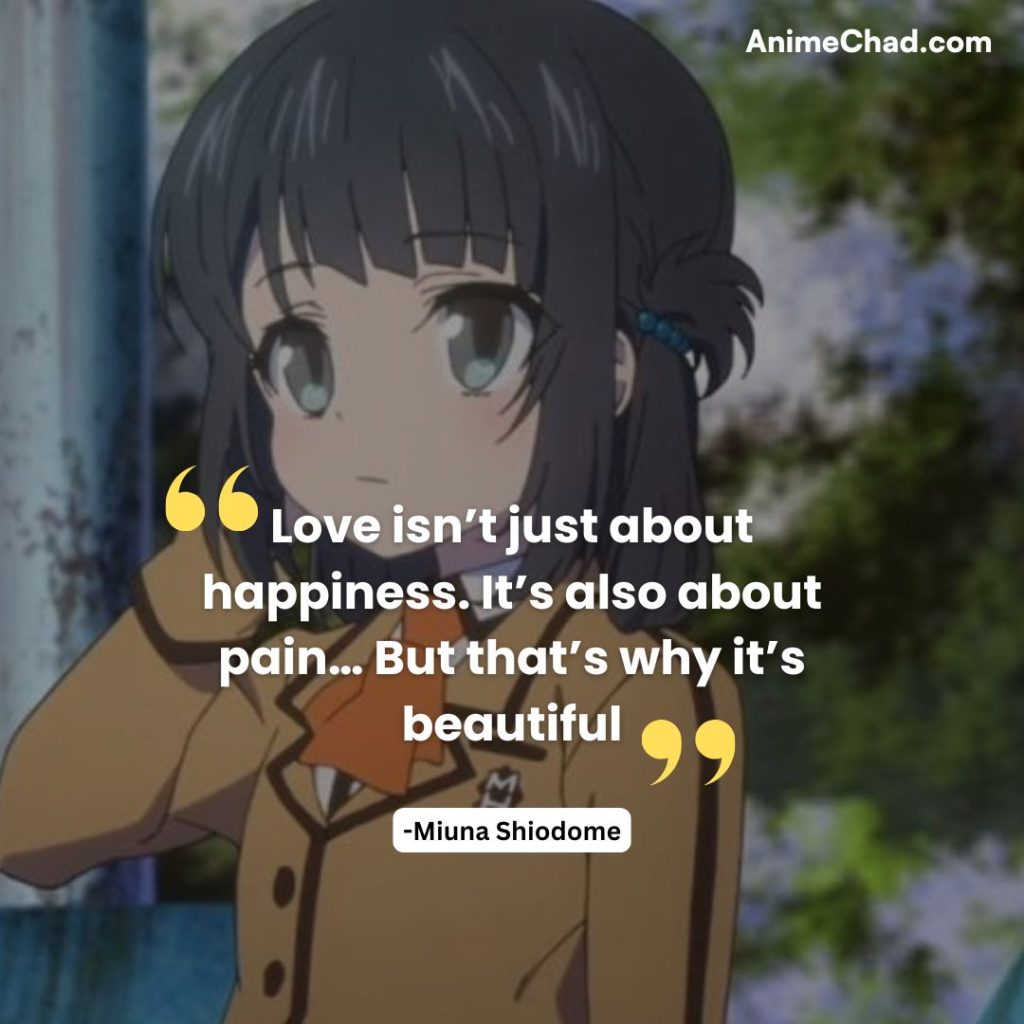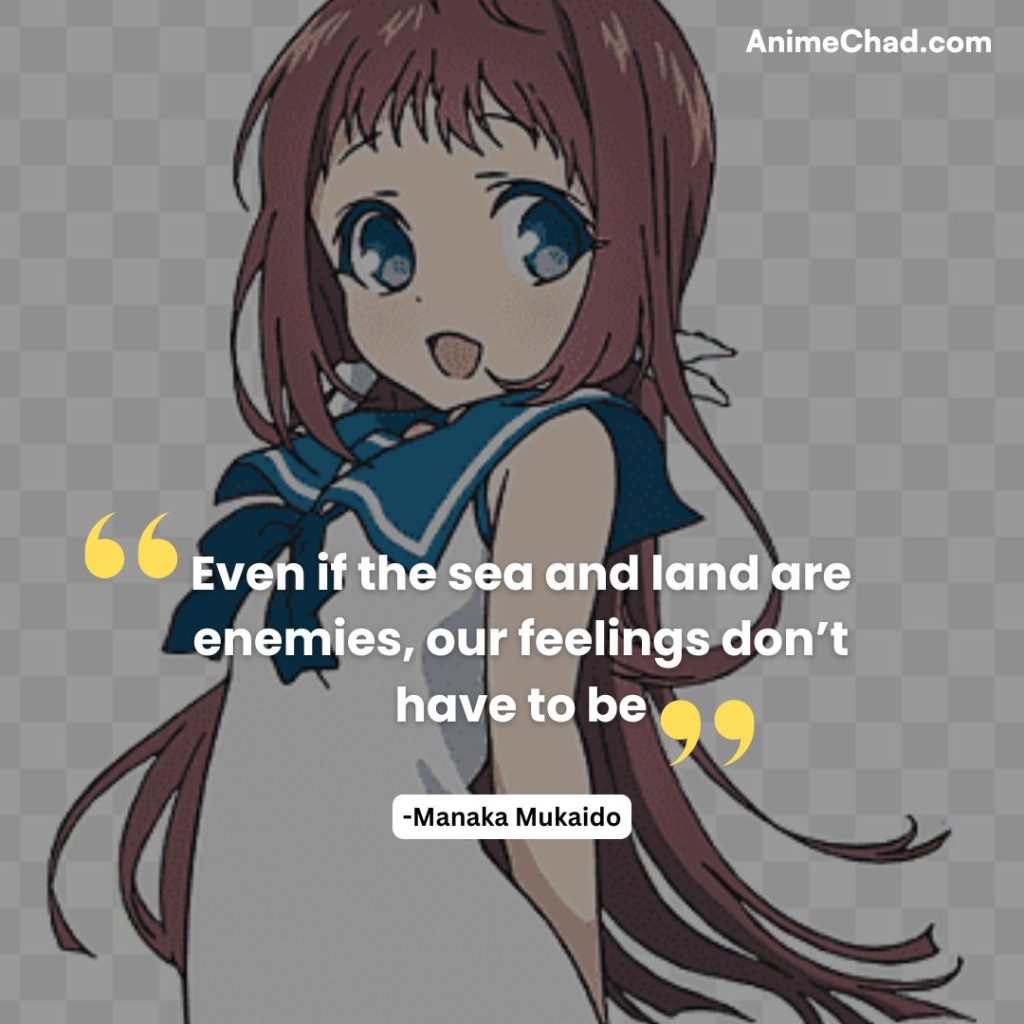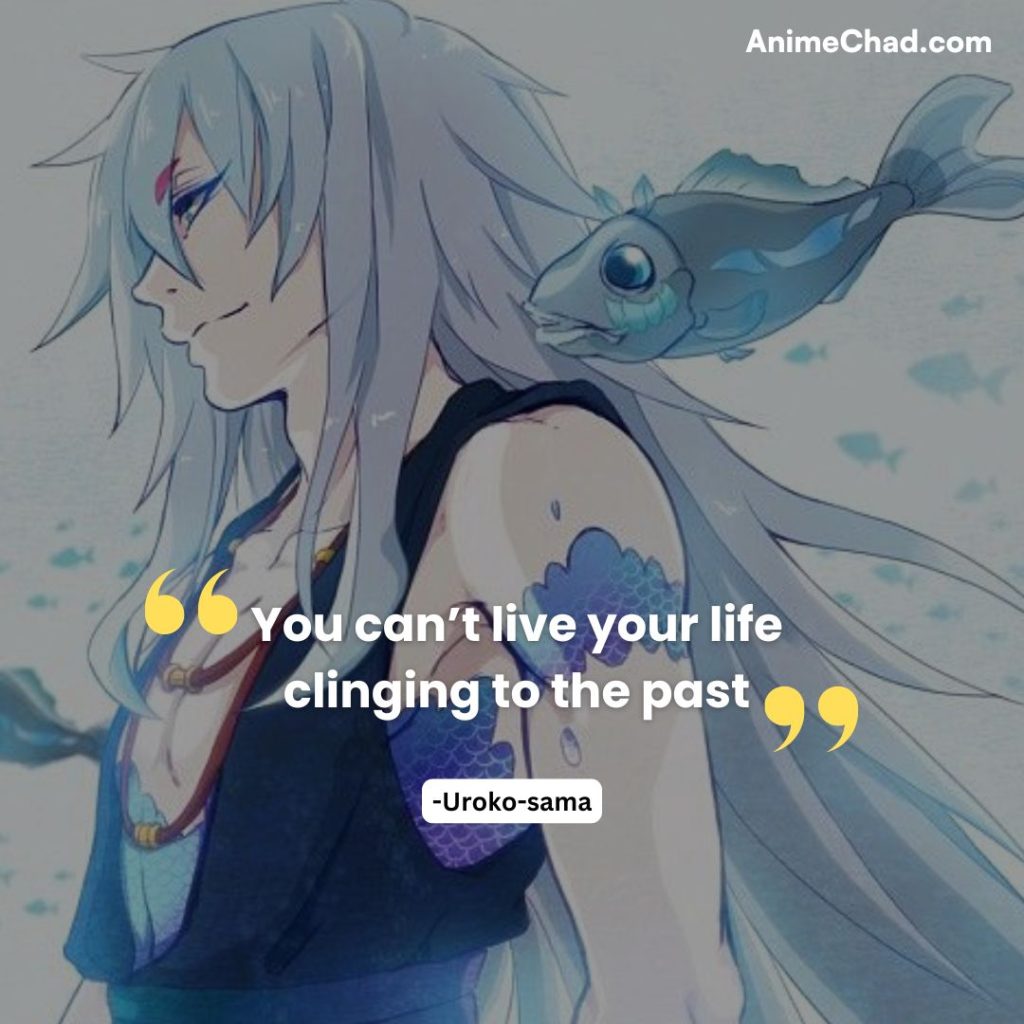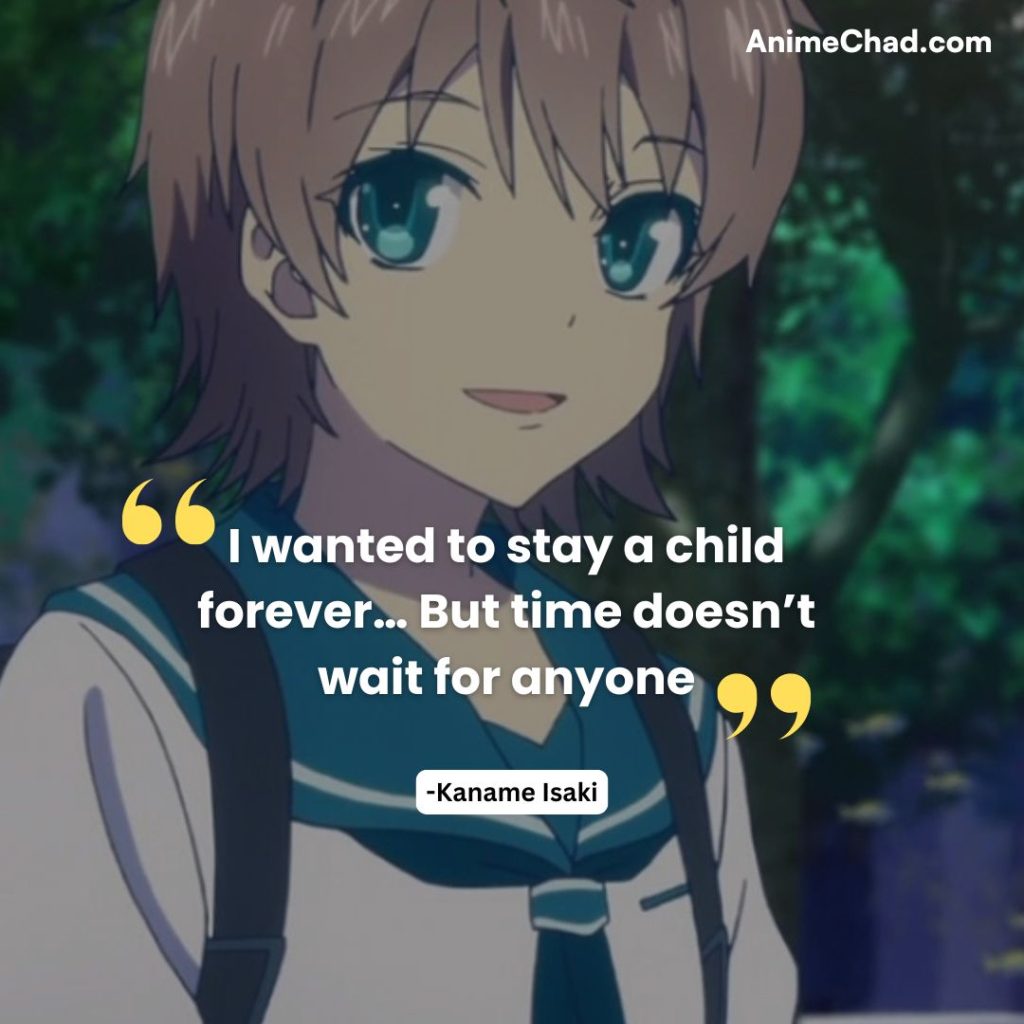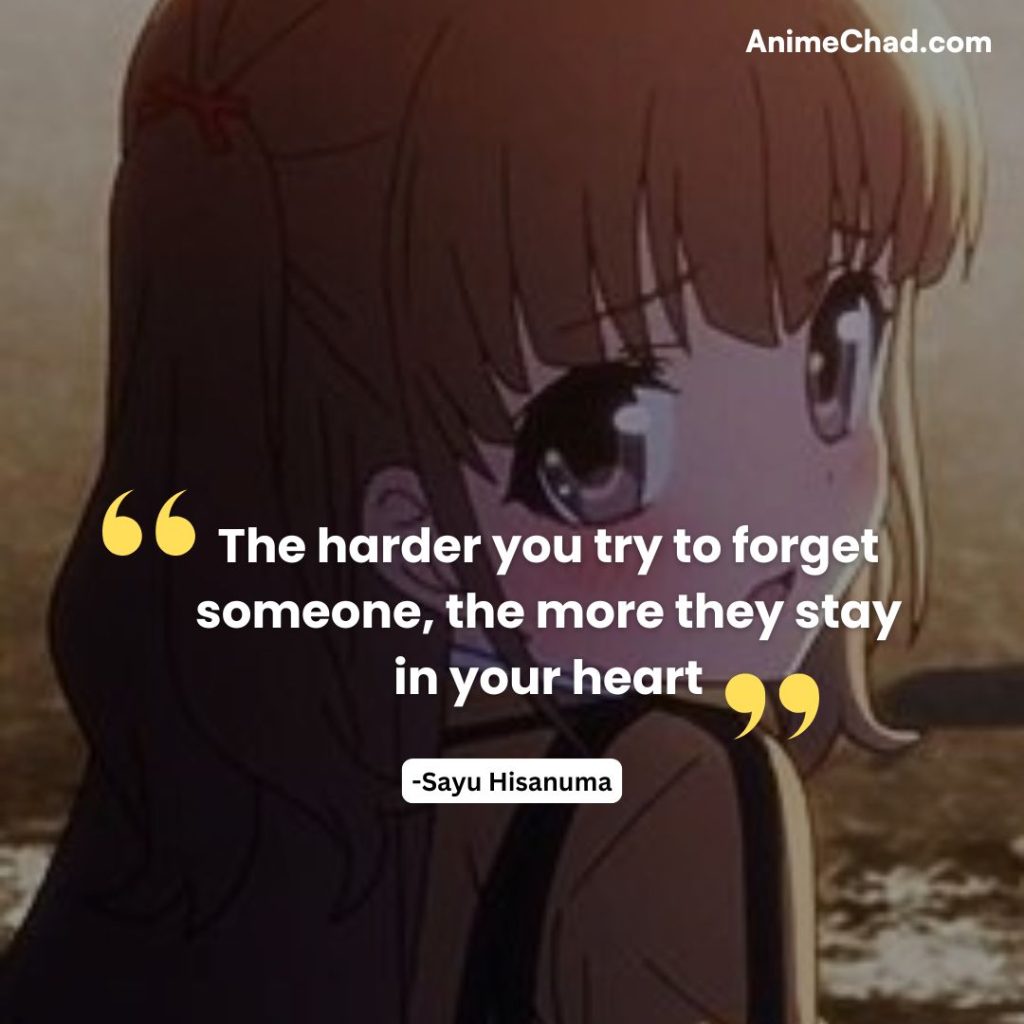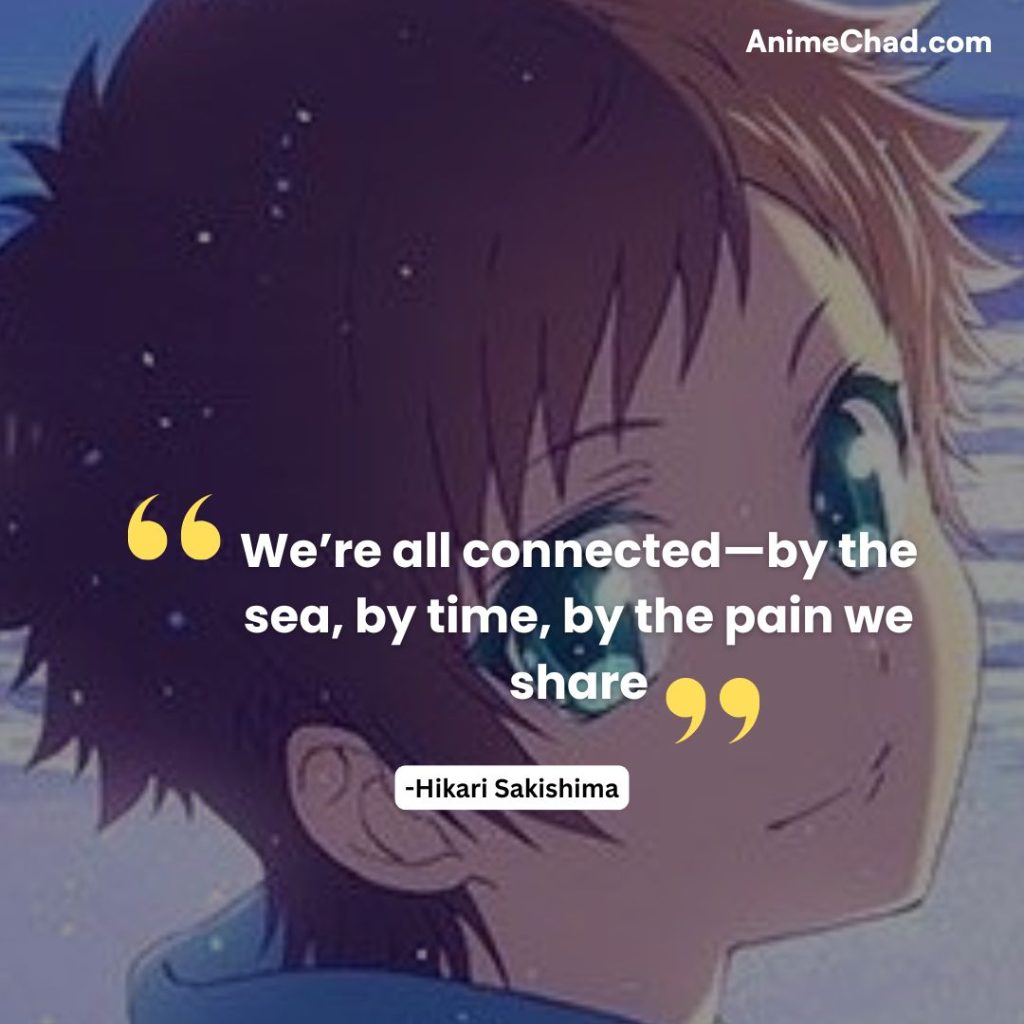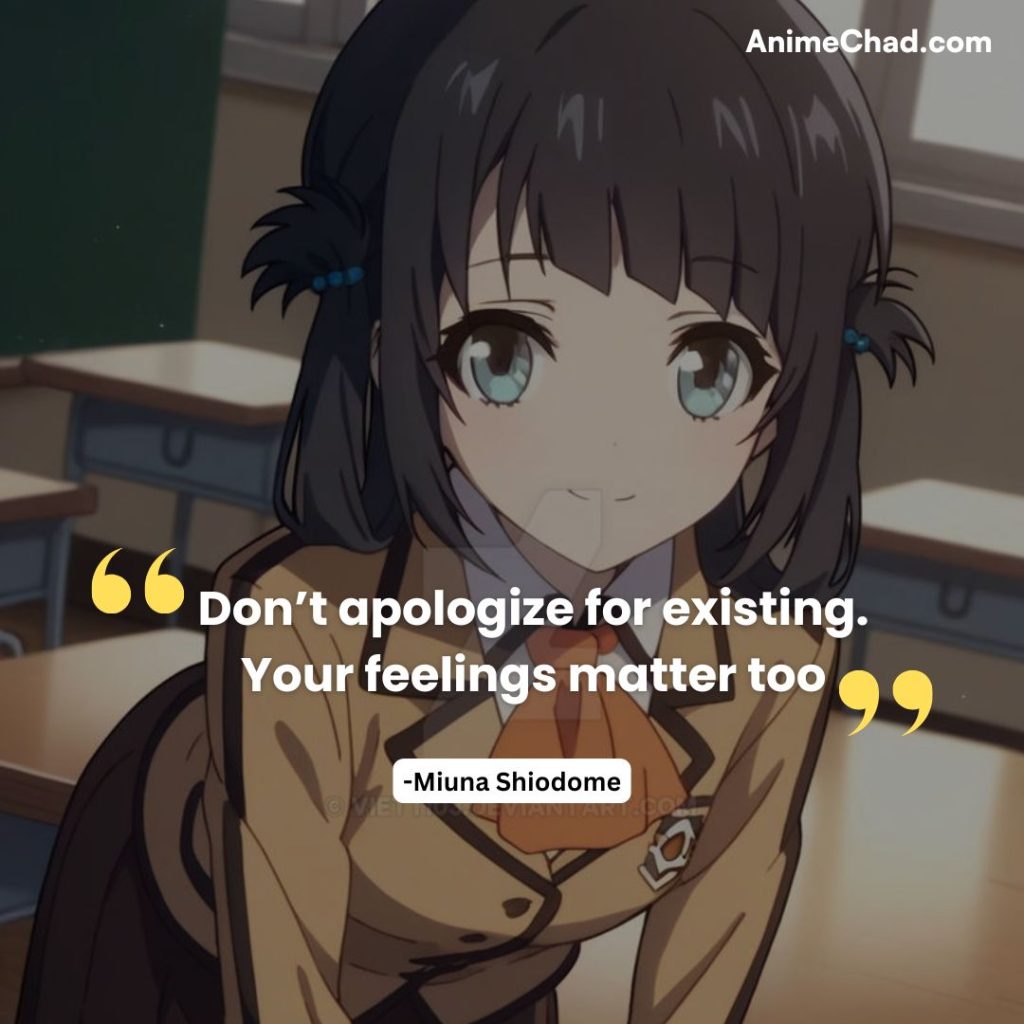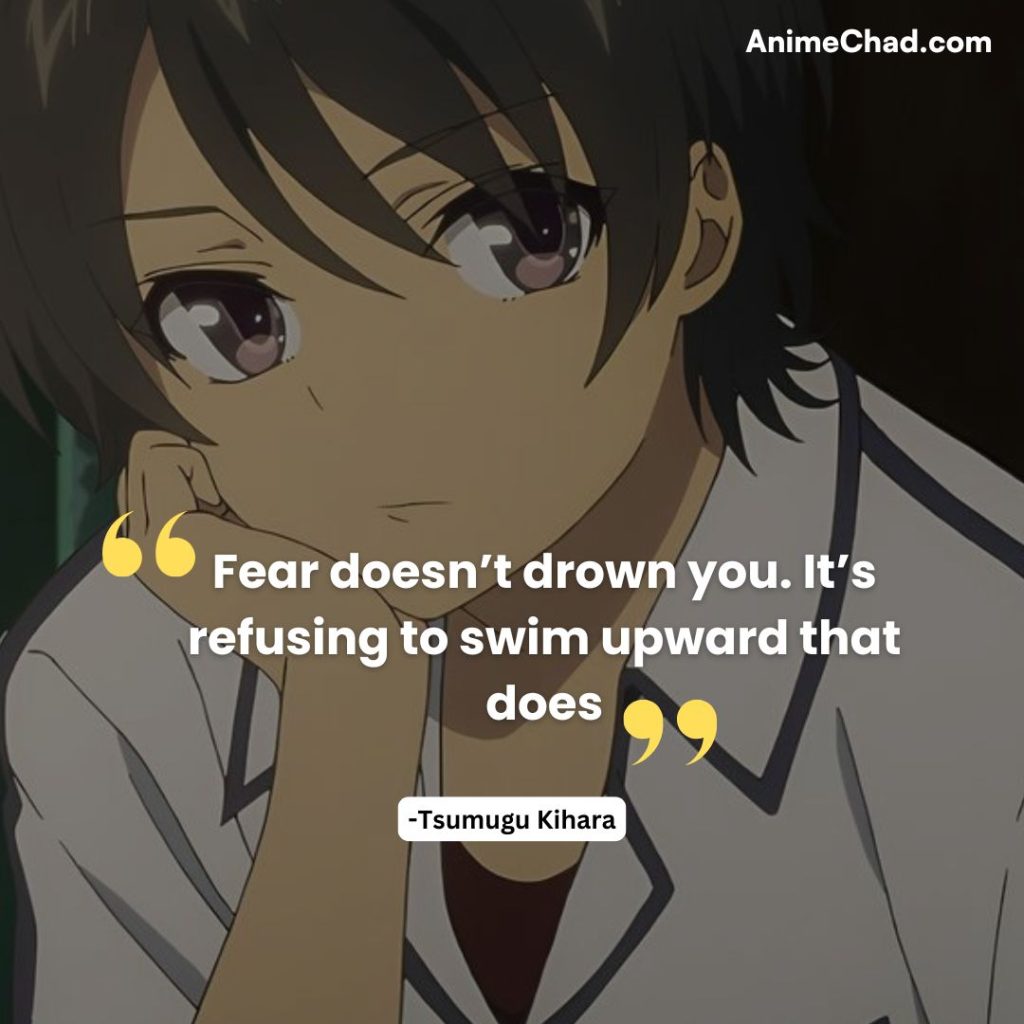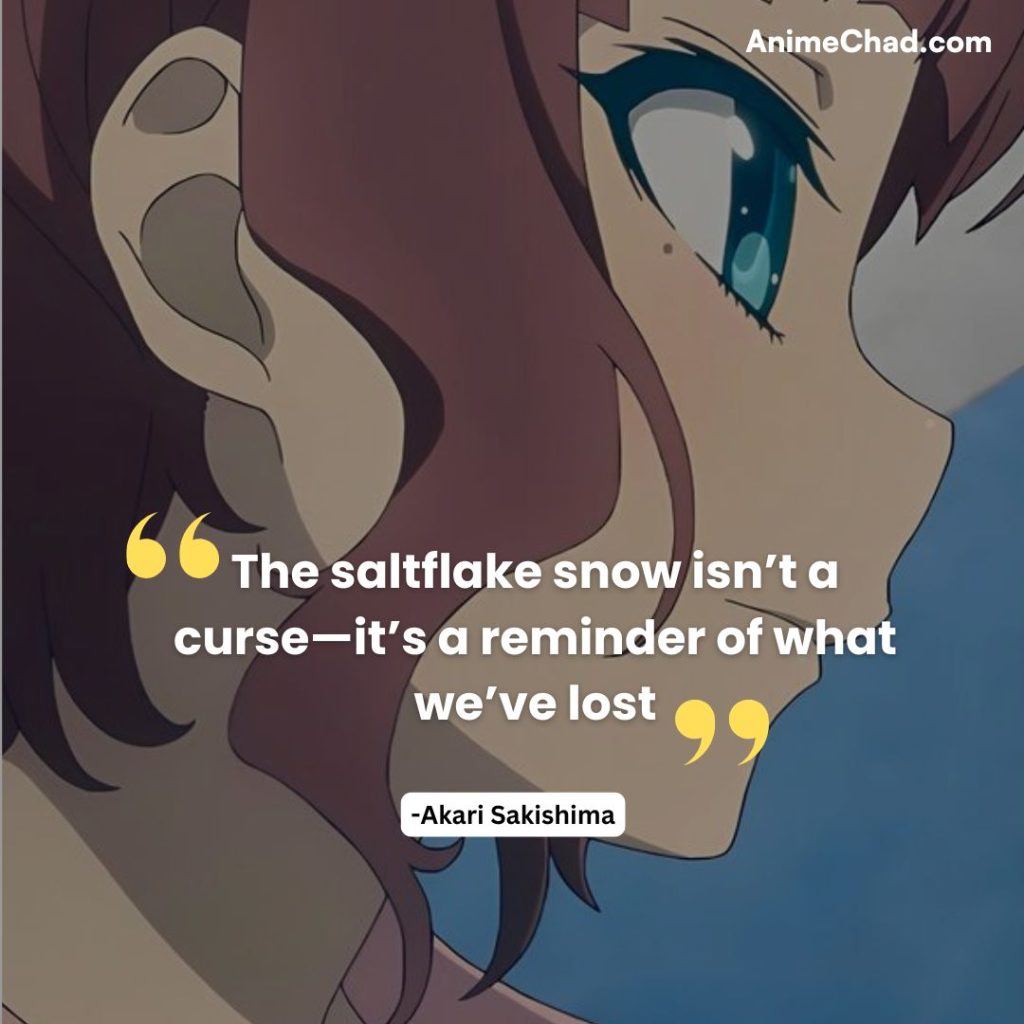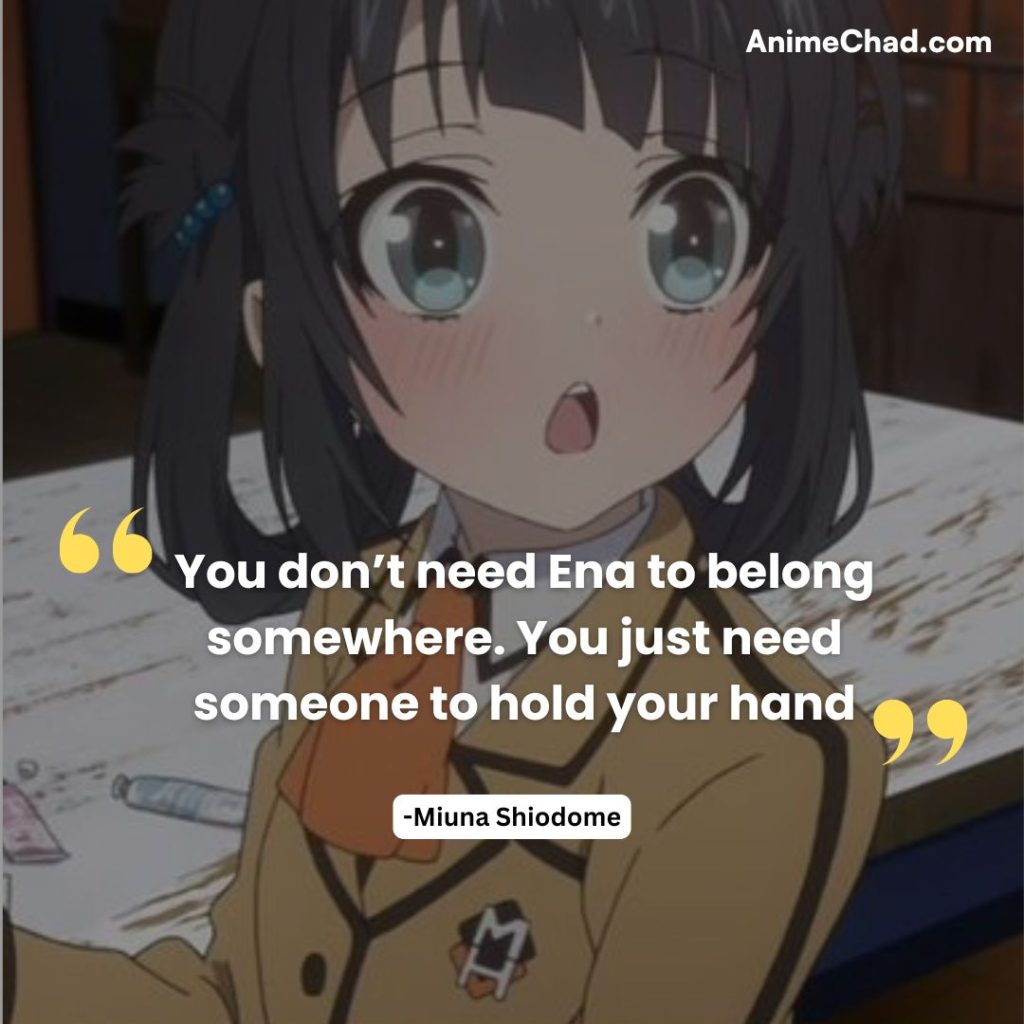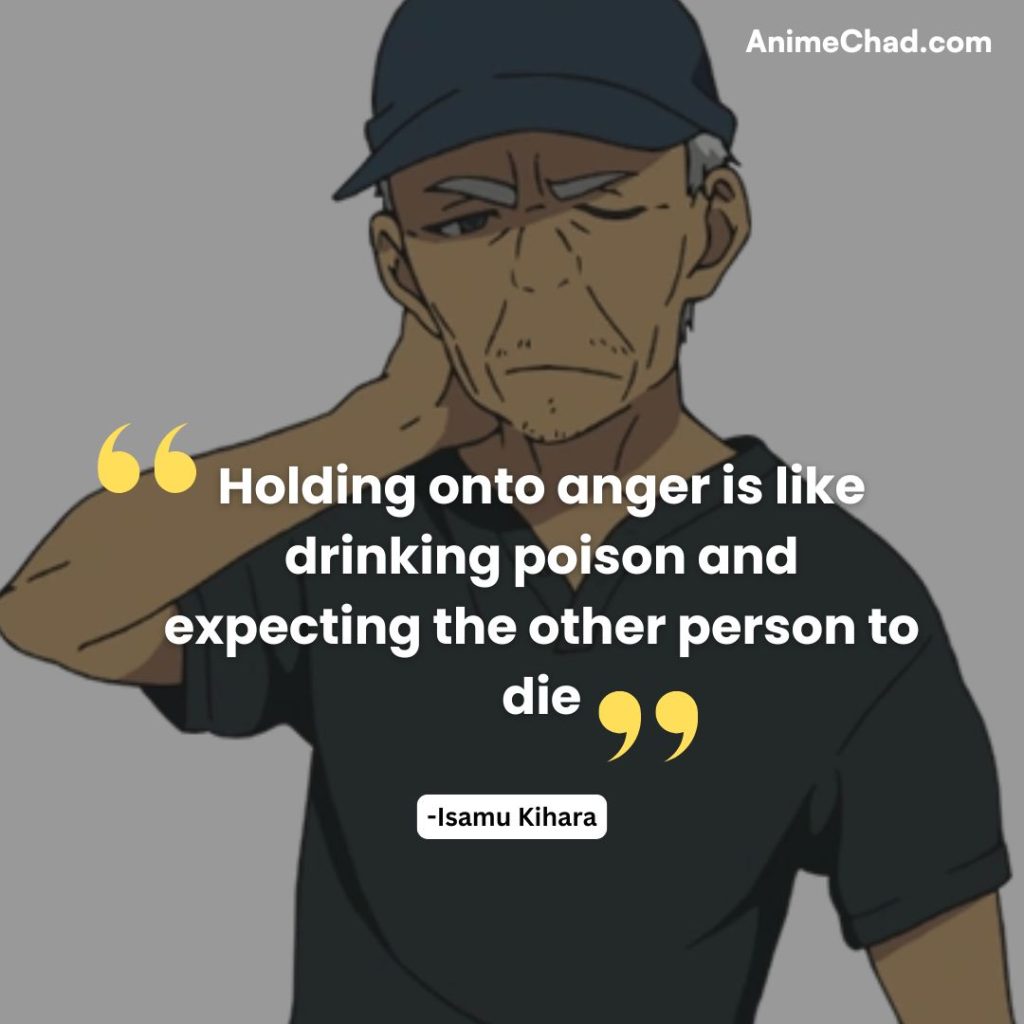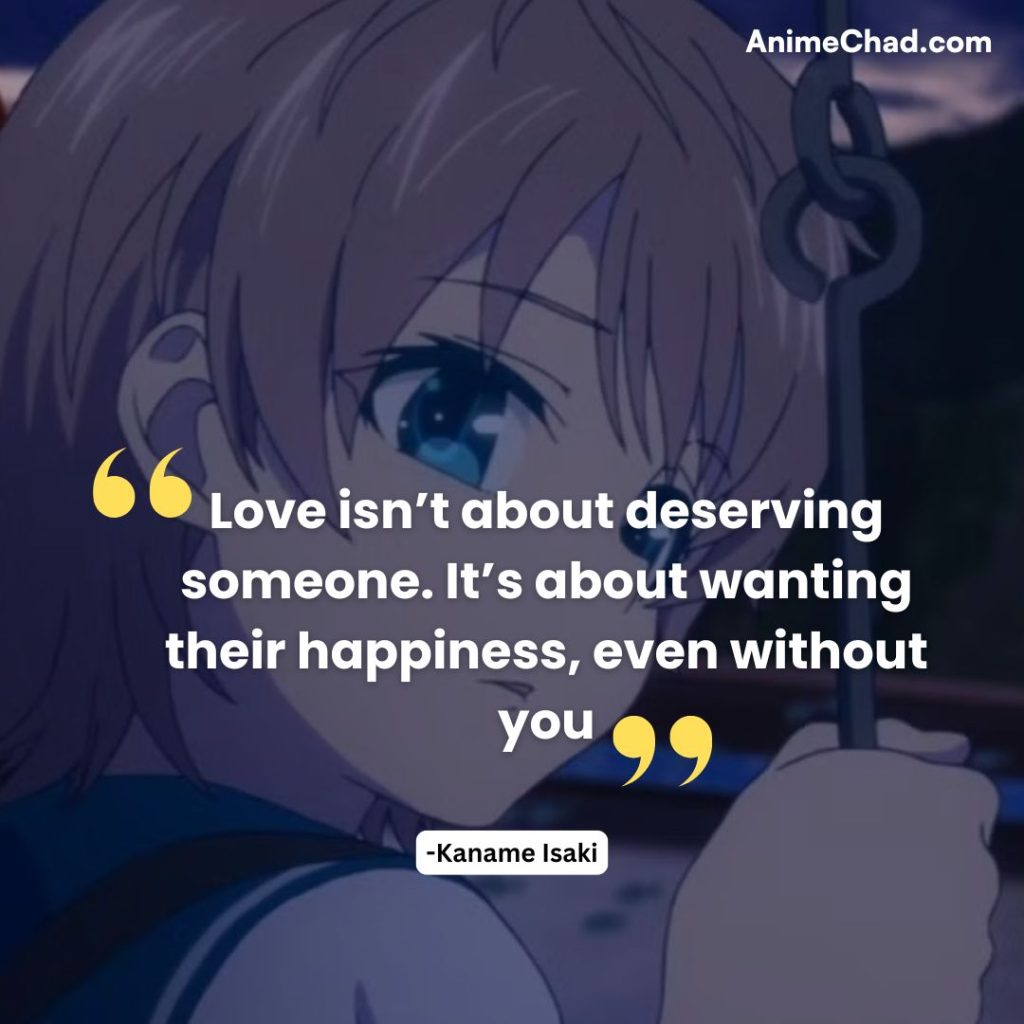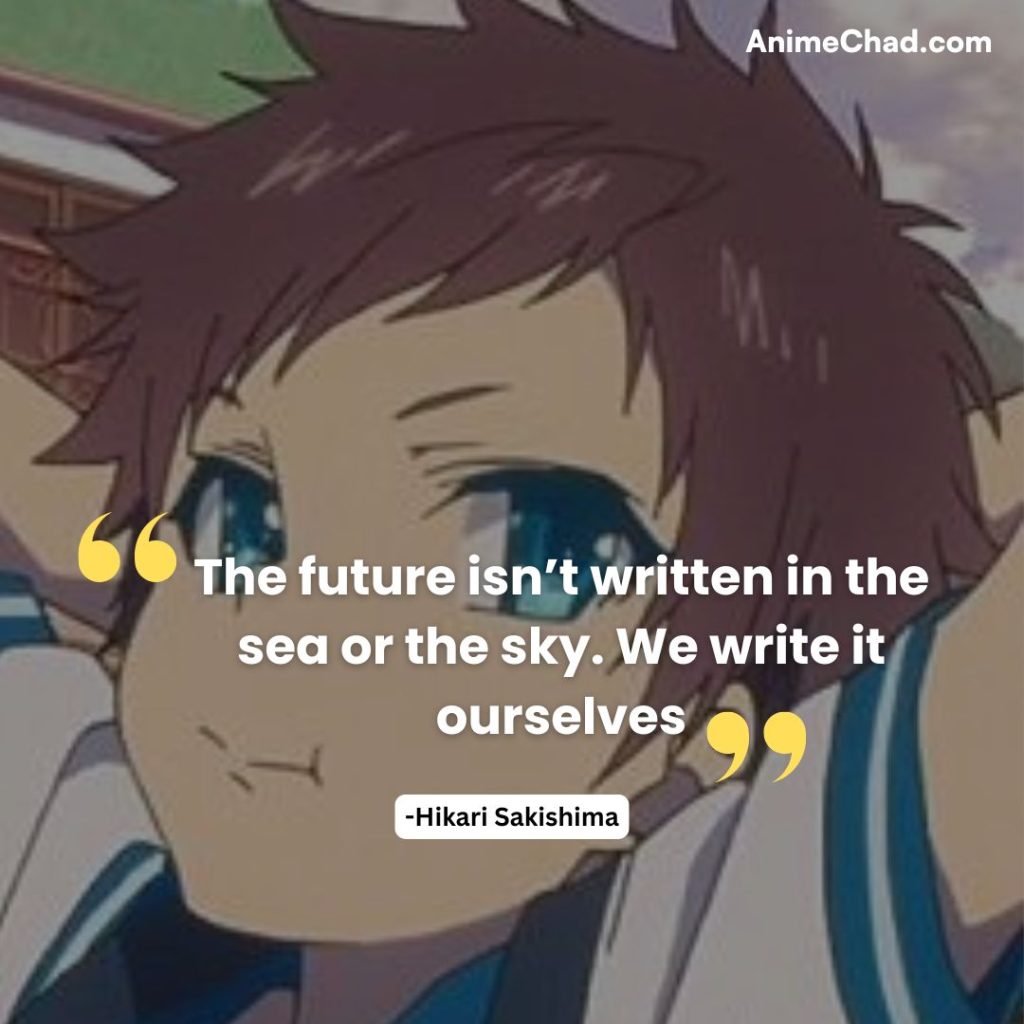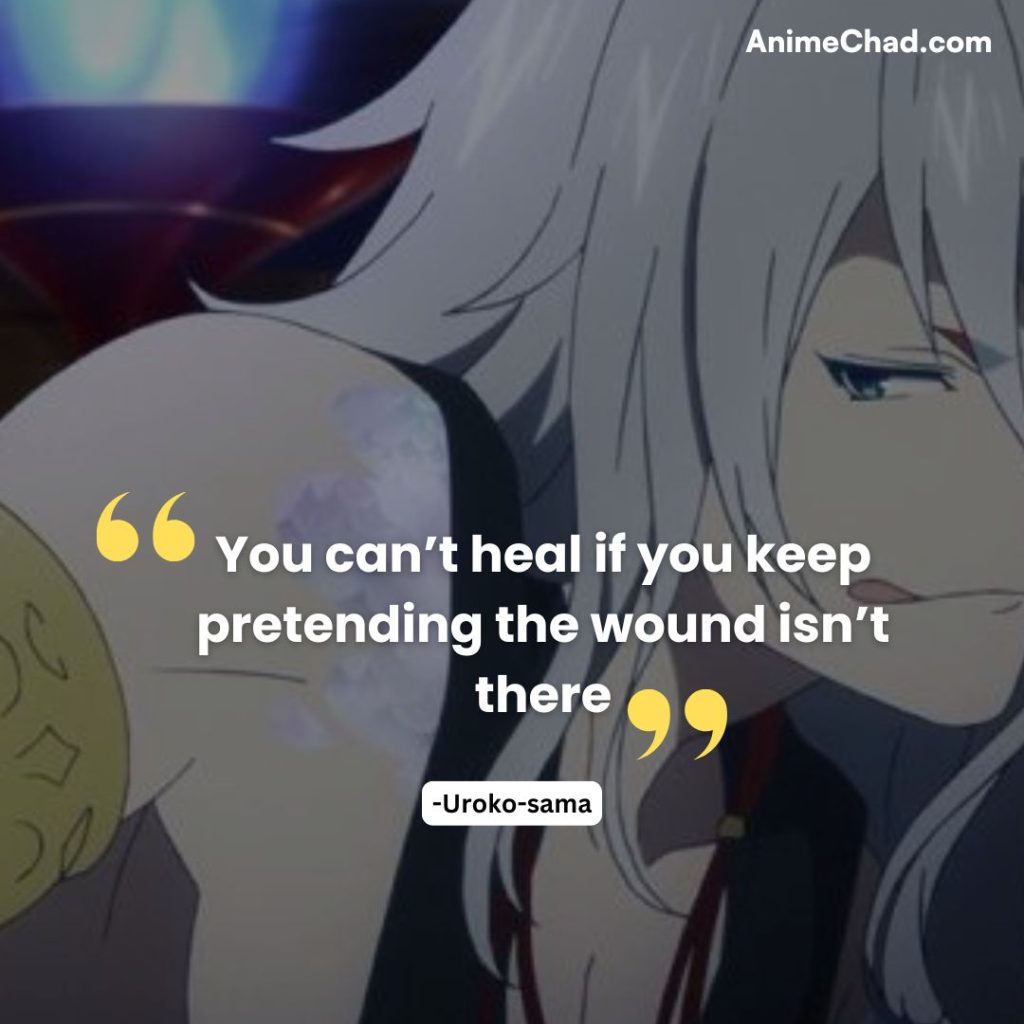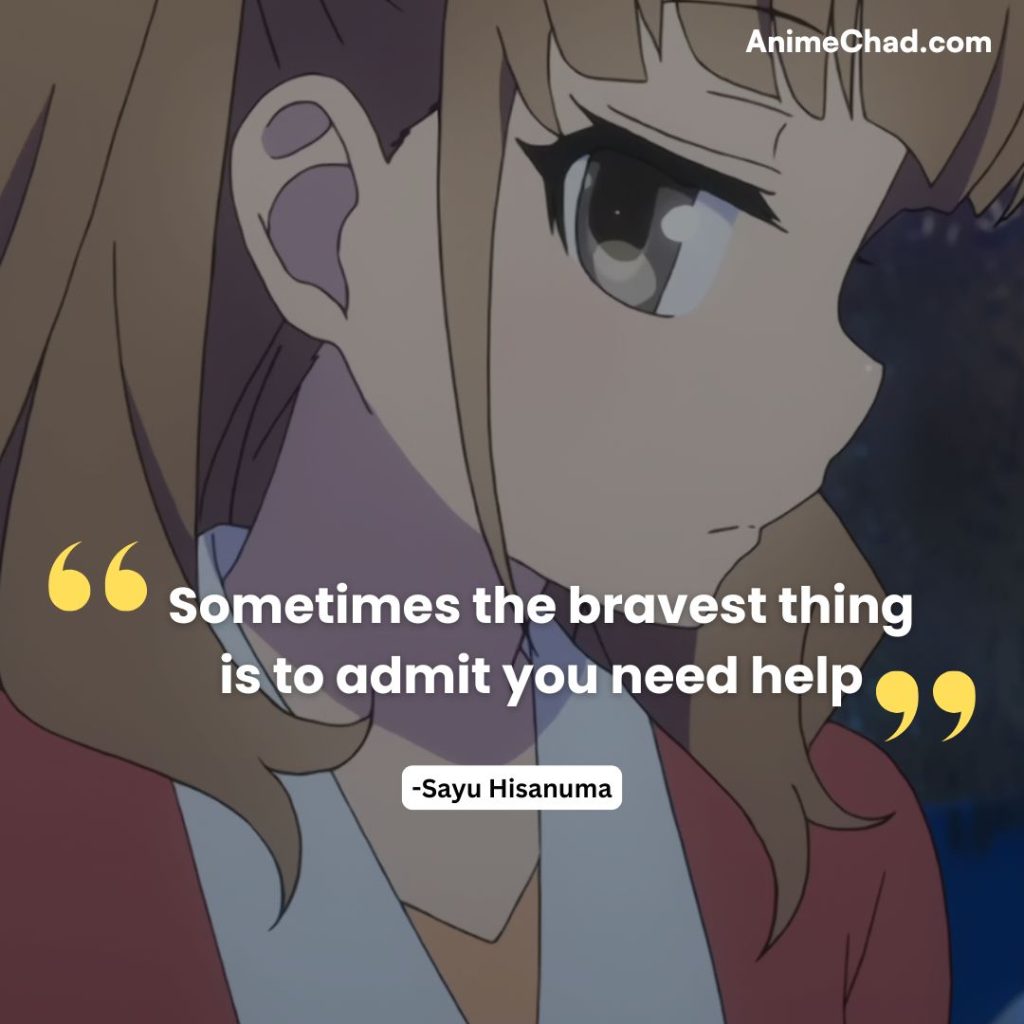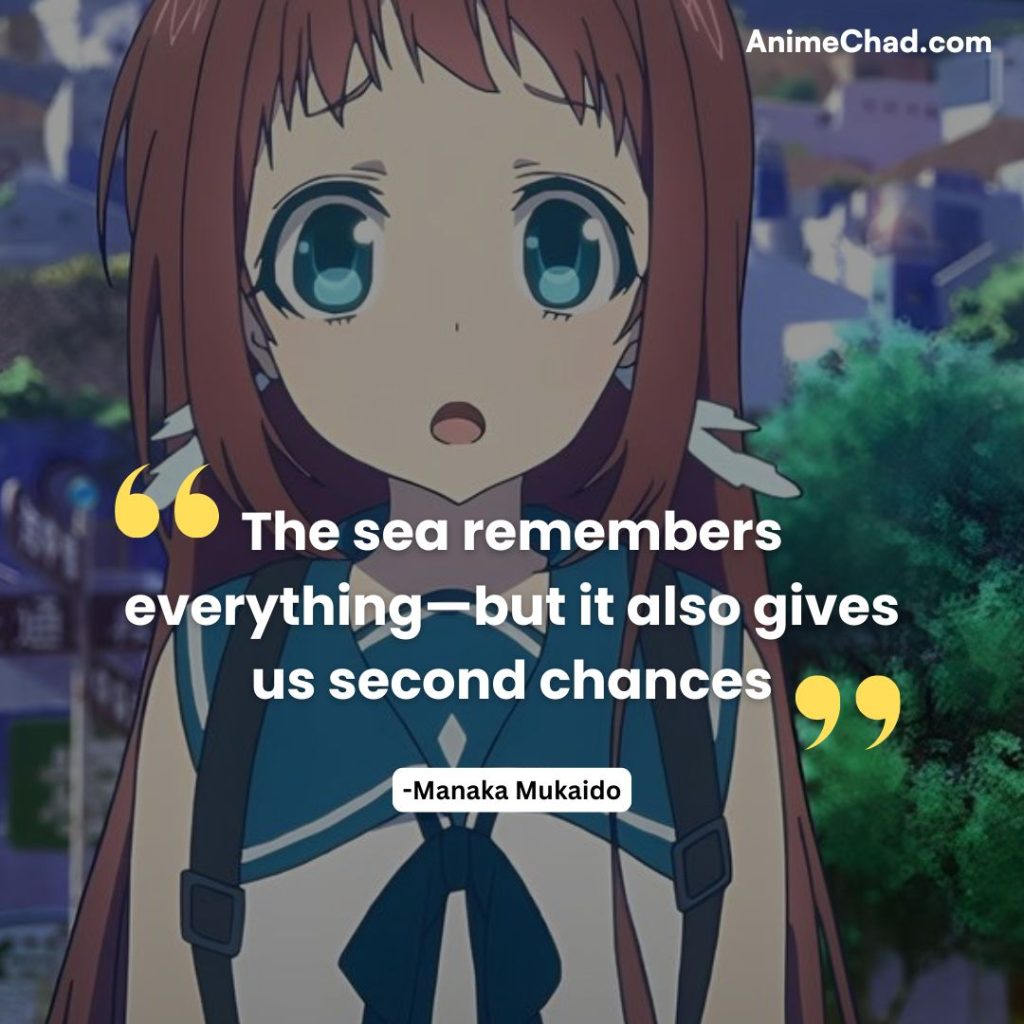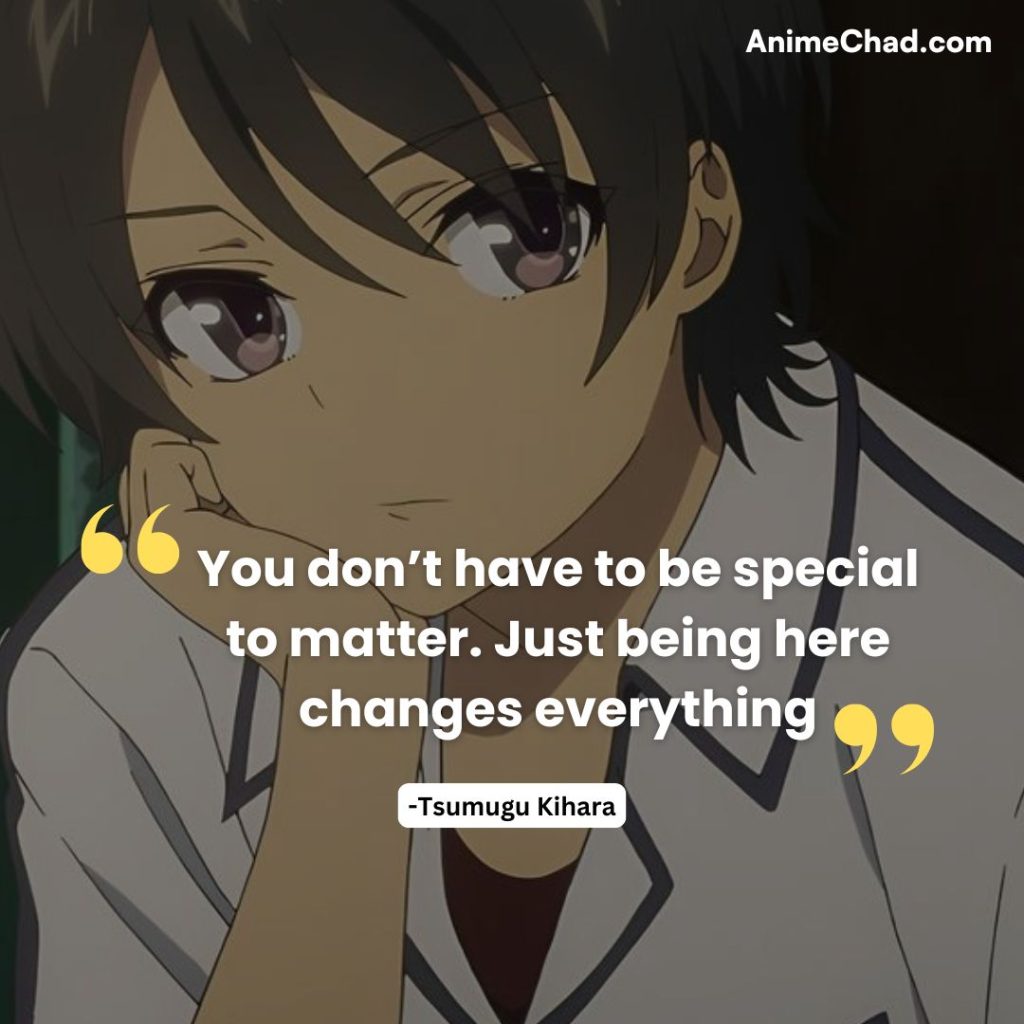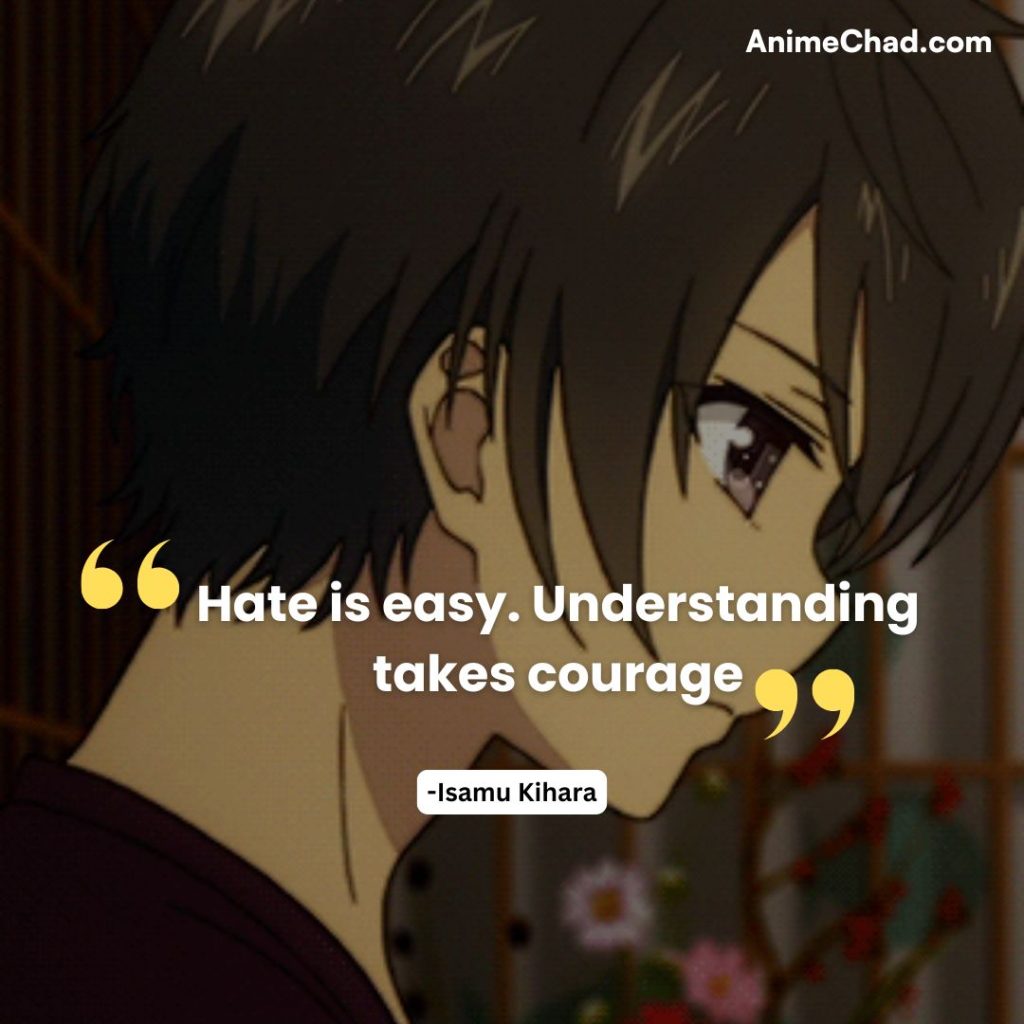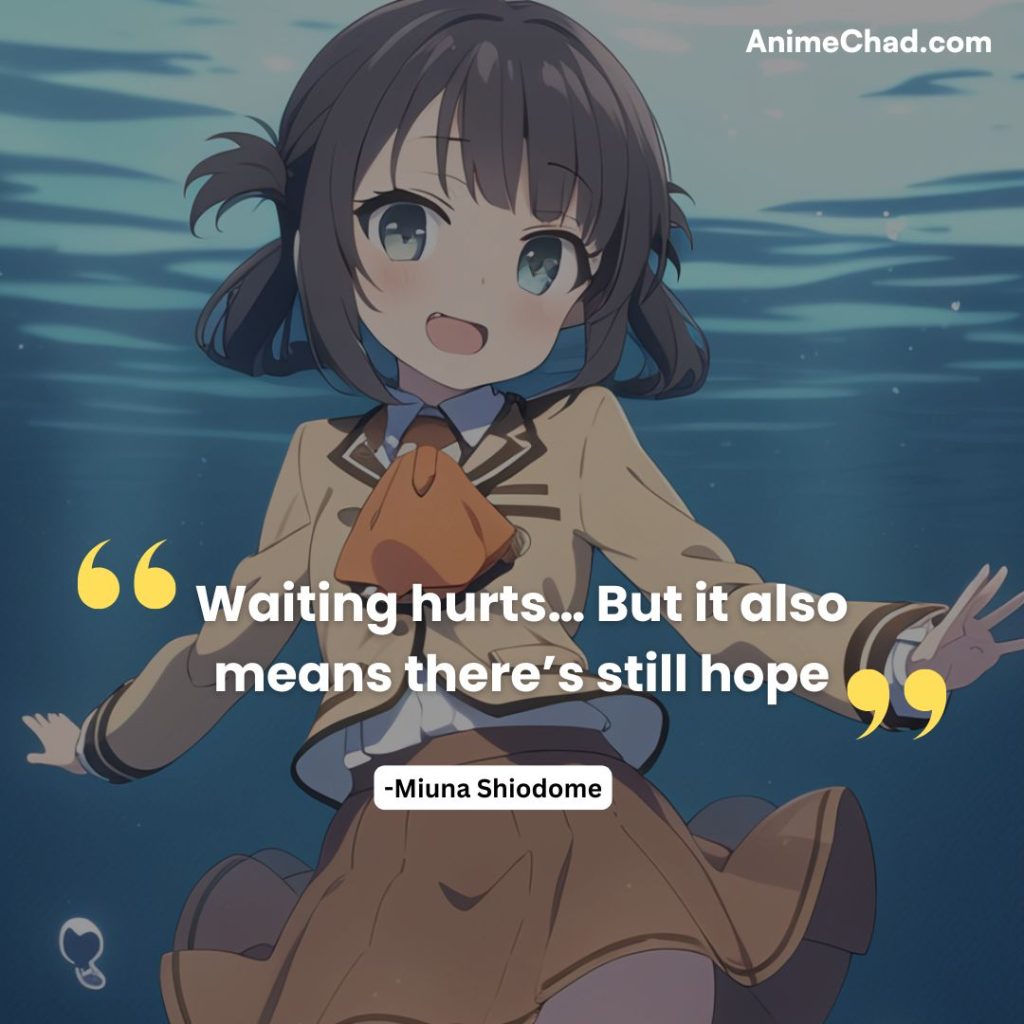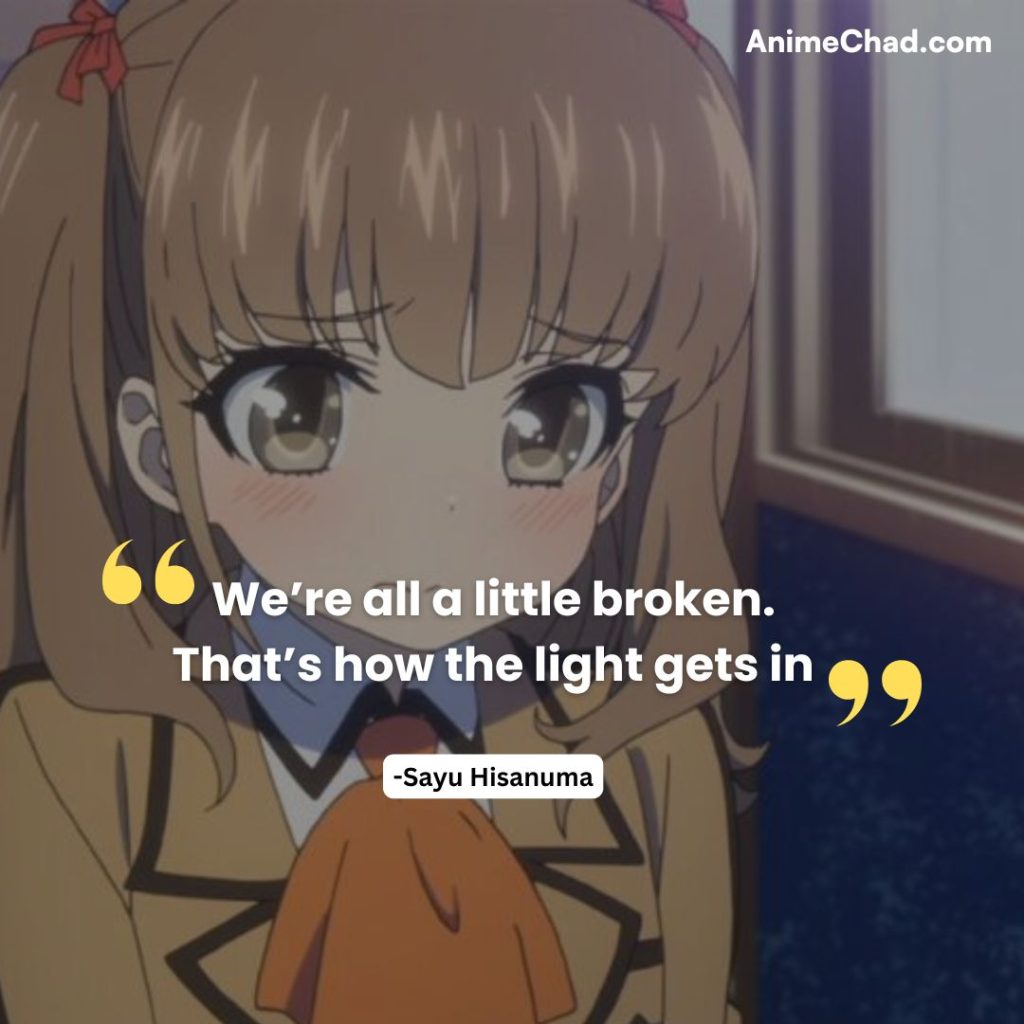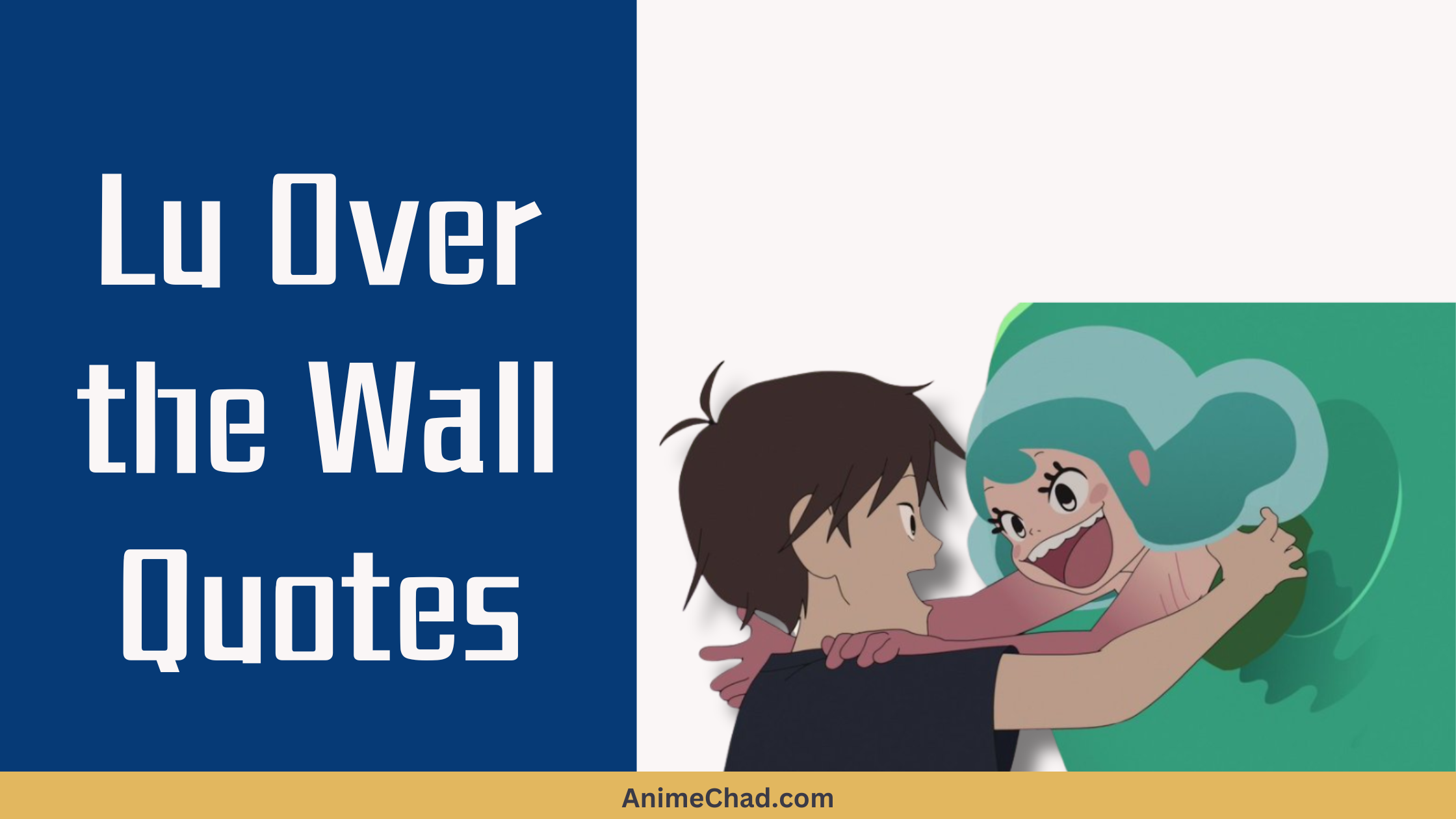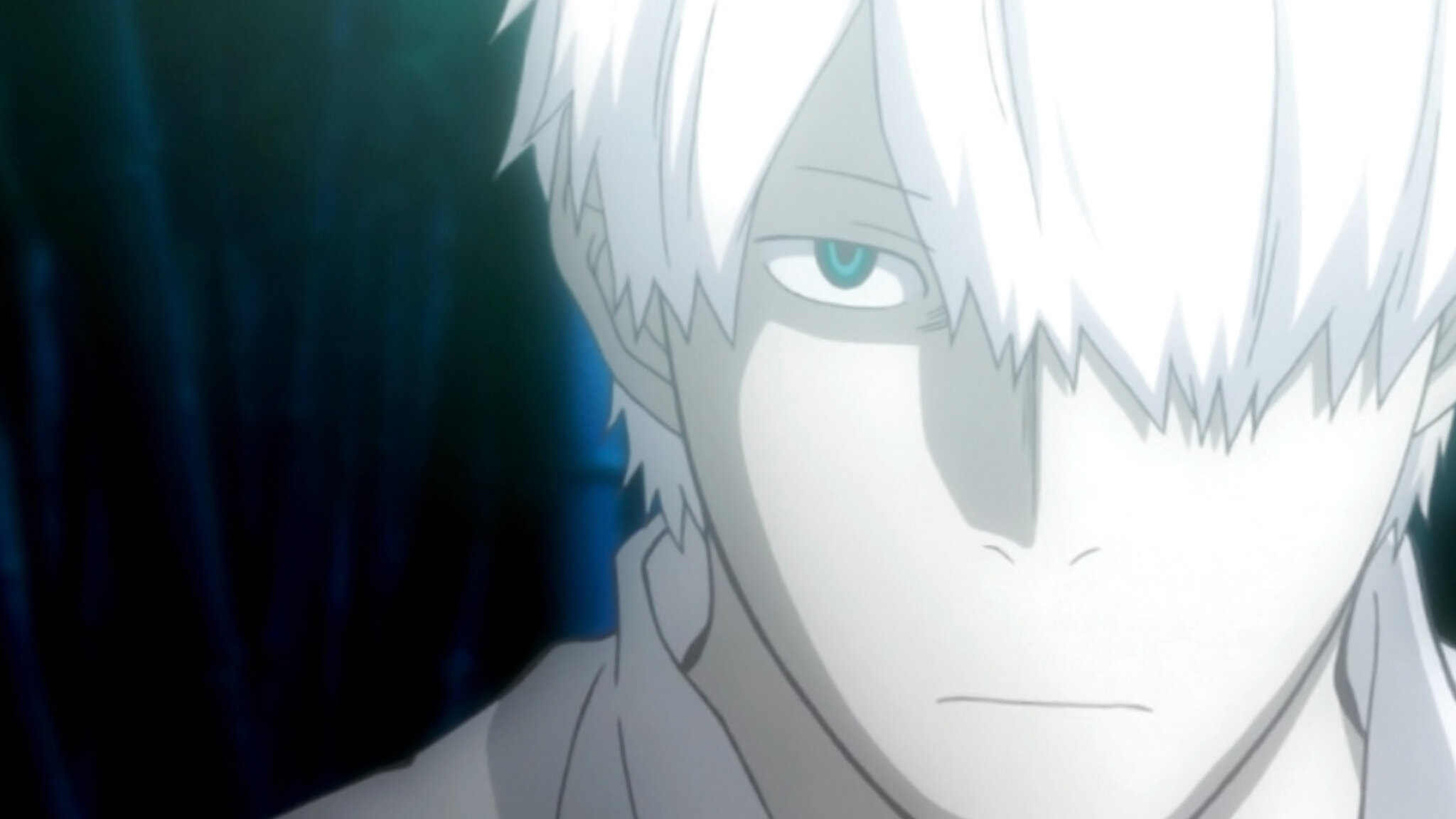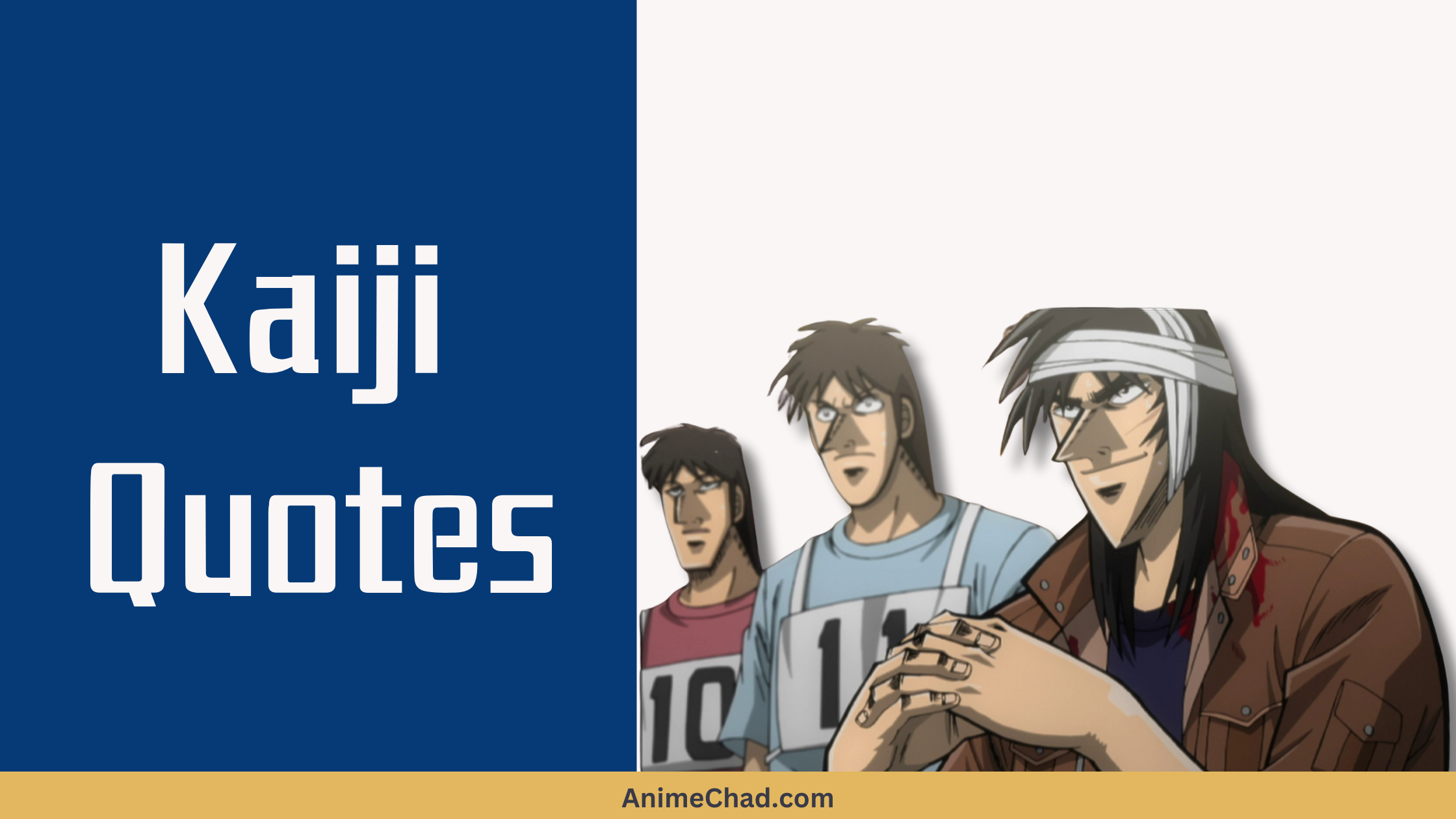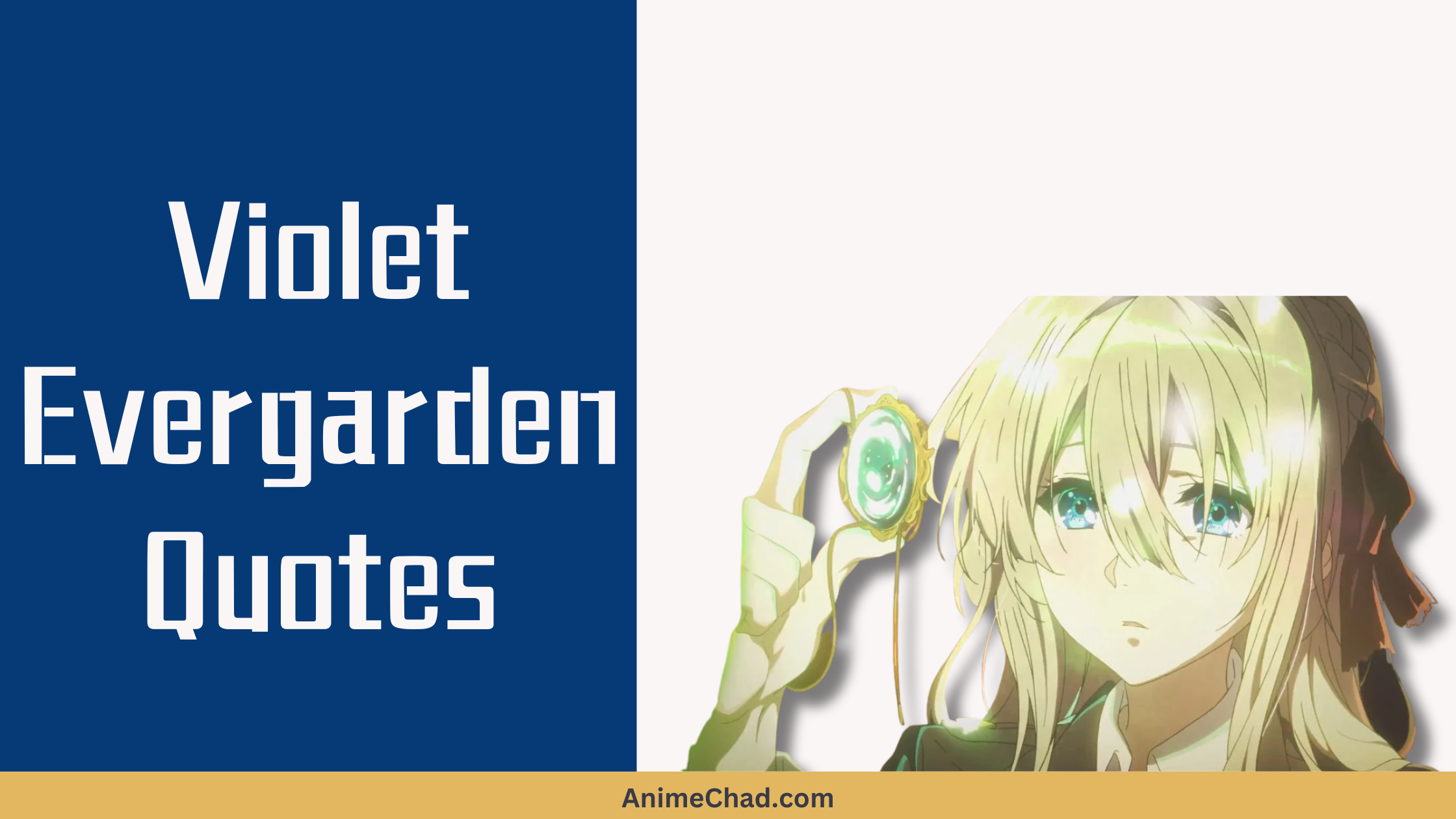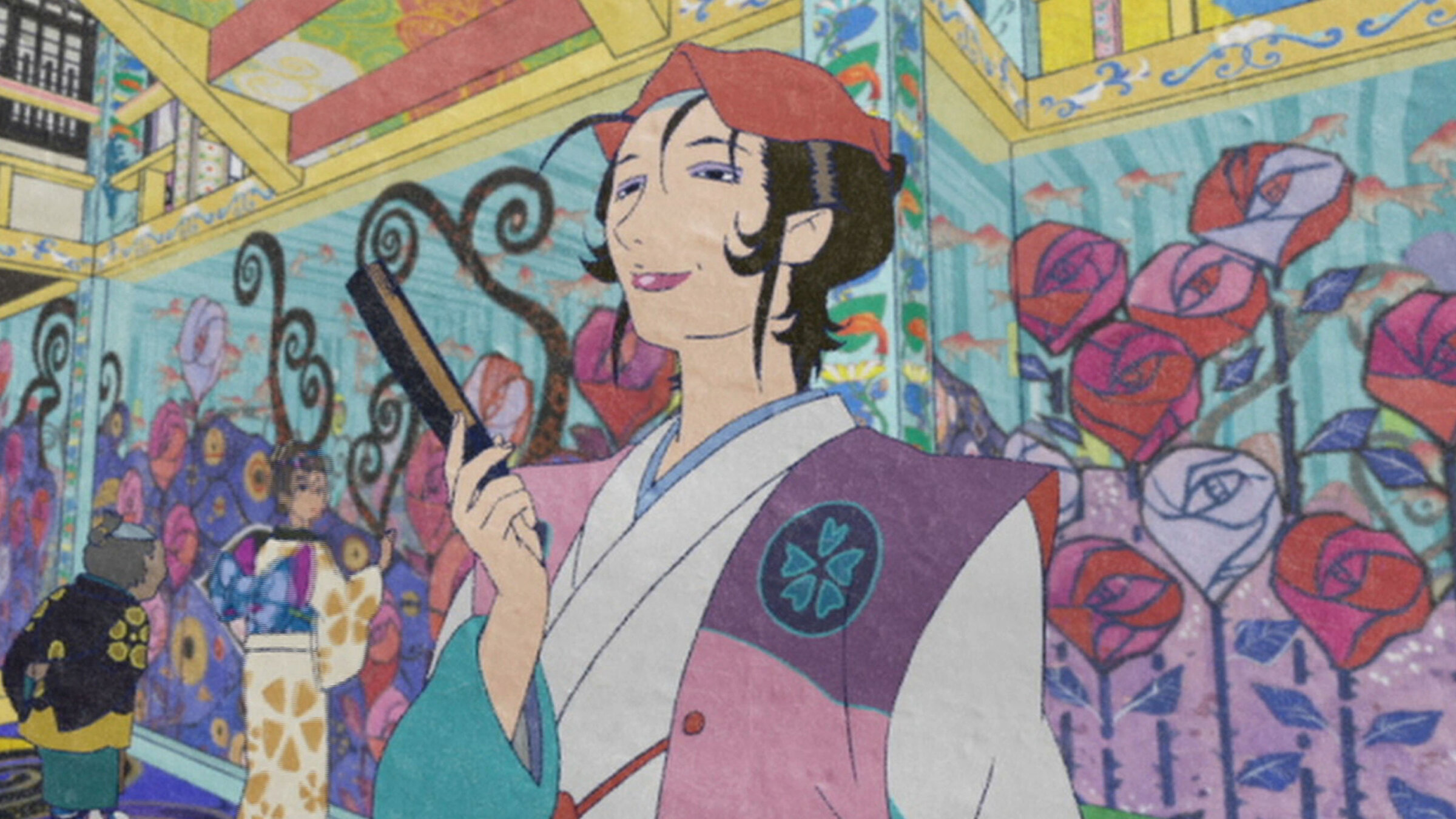A Lull in the Sea (Nagi no Asukara) follows a group of teenagers from the undersea village of Shioshishio as they navigate love, prejudice, and the clash between their oceanic heritage and the surface world.
The series explores themes of change, unrequited love, and the resilience of human connections across cultural divides.
This collection highlights 25 quotes that encapsulate the emotional depth, character growth, and poignant beauty of the series.
The sea and land are two different worlds. But they’re connected by the sky
(Episode 1: In Between the Sea and the Land)
Tsumugu Kihara
Tsumugu’s observation foreshadows the series’ central conflict and the eventual bridging of divides through empathy.
If you don’t like the way things are, you have to change them yourself!
(Episode 4: The Lost, Lost Little…)
Hikari Sakishima
Hikari’s defiant declaration marks his early resolve to challenge tradition and protect his friends.
Change is scary… But if we don’t accept it, we’ll never move forward
(Episode 13: The Sleeping Beauty)
Chisaki Hiradaira
Chisaki’s reluctant acceptance of the time skip reflects her arc from fear to maturity.
Love isn’t just about happiness. It’s also about pain… But that’s why it’s beautiful
(Episode 24: Detritus)
Miuna Shiodome
Miuna’s bittersweet realization underscores the series’ exploration of love’s complexity and sacrifice.
Even if the sea and land are enemies, our feelings don’t have to be
(Episode 8: Beyond the Wavering Feelings)
Manaka Mukaido
Manaka’s idealism challenges the generational feud between sea and surface communities.
You can’t live your life clinging to the past
(Episode 18: Shioshishio)
Uroko-sama
The sea god’s cryptic advice pushes characters to confront stagnation and embrace growth.
I wanted to stay a child forever… But time doesn’t wait for anyone
(Episode 14: The Promised Day)
Kaname Isaki
Kaname’s lament highlights the inevitability of change and lost innocence.
The harder you try to forget someone, the more they stay in your heart
(Episode 22: The Whispers of the Faraway Waves)
Sayu Hisanuma
Sayu’s confession to Kaname reveals the futility of suppressing genuine emotions.
We’re all connected—by the sea, by time, by the pain we share
(Episode 26: Color of the Sea…)
Hikari Sakishima
Hikari’s closing insight ties the series’ themes of unity and shared humanity.
Don’t apologize for existing. Your feelings matter too
(Episode 20: The Protector of Smiles)
Miuna Shiodome
Miuna comforts Manaka, showcasing her emotional maturity despite unrequited love.
Fear doesn’t drown you. It’s refusing to swim upward that does
(Episode 9: Unknown Warmth)
Tsumugu Kihara
Tsumugu’s metaphor encourages confronting fears rather than succumbing to paralysis.
The saltflake snow isn’t a curse—it’s a reminder of what we’ve lost
(Episode 12: I Want to be Kind)
Akari Sakishima
Akari recontextualizes suffering as a catalyst for healing and connection.
You don’t need Ena to belong somewhere. You just need someone to hold your hand
(Episode 17: The Sick Two)
Miuna Shiodome
Miuna’s plea to Hikari rejects superficial bonds in favor of genuine connection.
Holding onto anger is like drinking poison and expecting the other person to die
(Episode 6: The Moaning of the Sea God)
Isamu Kihara
Isamu’s wisdom challenges Hikari’s early hostility toward surface dwellers.
Love isn’t about deserving someone. It’s about wanting their happiness, even without you
(Episode 25: Love, Is Like the Sea)
Kaname Isaki
Kaname’s selfless resolve redefines his understanding of love and sacrifice.
The future isn’t written in the sea or the sky. We write it ourselves
(Episode 23: The Collapse of the Saltflake Snow)
Hikari Sakishima
Hikari’s leadership crystallizes as he rejects fatalism to forge a new path.
Tears aren’t weak. They’re proof you cared enough to hurt
(Episode 19: The Scattering of Light)
Chisaki Hiradaira
Chisaki validates vulnerability as strength during the group’s emotional reckoning.
You can’t heal if you keep pretending the wound isn’t there
(Episode 15: The Currents’ Destination)
Uroko-sama
The sea god’s blunt truth forces characters to confront suppressed traumas.
Home isn’t a place. It’s wherever the people you love are waiting
(Episode 21: The Passing of the Year)
Miuna Shiodome
Miuna redefines belonging beyond physical boundaries, emphasizing emotional ties.
Sometimes the bravest thing is to admit you need help
(Episode 11: The Road Home)
Sayu Hisanuma
Sayu’s growth shines as she learns to lean on others.
The sea remembers everything—but it also gives us second chances
(Episode 26: Color of the Sea…)
Manaka Mukaido
Manaka’s regained memories symbolize reconciliation between past and present.
You don’t have to be special to matter. Just being here changes everything
(Episode 7: The Messenger from the Bottom of the Sea)
Tsumugu Kihara
Tsumugu’s quiet reassurance to Chisaki challenges her insecurities about mediocrity.
Hate is easy. Understanding takes courage
(Episode 3: The Tradition of the Sea)
Isamu Kihara
Isamu’s lesson to Hikari critiques prejudice and advocates empathy.
Waiting hurts… But it also means there’s still hope
(Episode 16: The Guardian of the Marinos)
Miuna Shiodome
Miuna’s resilience transforms passive longing into active perseverance.
We’re all a little broken. That’s how the light gets in
(Episode 24: Detritus)
Sayu Hisanuma
Sayu’s optimism reframes pain as a gateway to growth and connection.
These quotes capture A Lull in the Sea’s haunting beauty, weaving together the ache of growing up, the courage to embrace change, and the enduring power of love in all its forms.

